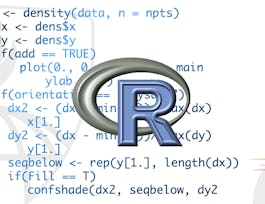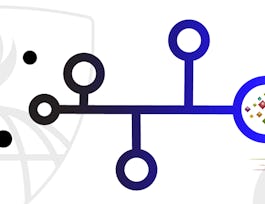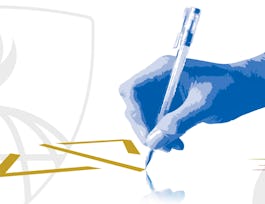In this course you will get an introduction to the main tools and ideas in the data scientist's toolbox. The course gives an overview of the data, questions, and tools that data analysts and data scientists work with. There are two components to this course. The first is a conceptual introduction to the ideas behind turning data into actionable knowledge. The second is a practical introduction to the tools that will be used in the program like version control, markdown, git, GitHub, R, and RStudio.


The Data Scientist’s Toolbox
This course is part of multiple programs.
Taught in English
Some content may not be translated



Instructors: Jeff Leek, PhD
736,099 already enrolled
Included with 
Course
(33,838 reviews)
96%
What you'll learn
Set up R, R-Studio, Github and other useful tools
Understand the data, problems, and tools that data analysts use
Explain essential study design concepts
Create a Github repository
Skills you'll gain
Details to know

Add to your LinkedIn profile
21 quizzes
Course
(33,838 reviews)
96%
See how employees at top companies are mastering in-demand skills

Build your subject-matter expertise
- Learn new concepts from industry experts
- Gain a foundational understanding of a subject or tool
- Develop job-relevant skills with hands-on projects
- Earn a shareable career certificate


Earn a career certificate
Add this credential to your LinkedIn profile, resume, or CV
Share it on social media and in your performance review

There are 4 modules in this course
In this module, we'll introduce and define data science and data itself. We'll also go over some of the resources that data scientists use to get help when they're stuck.
What's included
5 videos2 readings5 quizzes5 plugins
In this module, we'll help you get up and running with both R and RStudio. Along the way, you'll learn some basics about both and why data scientists use them.
What's included
5 videos6 quizzes5 plugins
During this module, you'll learn about version control and why it's so important to data scientists. You'll also learn how to use Git and GitHub to manage version control in data science projects.
What's included
4 videos5 quizzes4 plugins
During this final module, you'll learn to use R Markdown and get an introduction to three concepts that are incredibly important to every successful data scientist: asking good questions, experimental design, and big data.
What's included
4 videos5 quizzes1 peer review4 plugins
Instructors

Offered by
Recommended if you're interested in Data Analysis

Johns Hopkins University

Johns Hopkins University

Johns Hopkins University

Johns Hopkins University
Why people choose Coursera for their career




Learner reviews
Showing 3 of 33838
33,838 reviews
- 5 stars
69.46%
- 4 stars
23.20%
- 3 stars
5.27%
- 2 stars
1.10%
- 1 star
0.95%
New to Data Analysis? Start here.

Open new doors with Coursera Plus
Unlimited access to 7,000+ world-class courses, hands-on projects, and job-ready certificate programs - all included in your subscription
Advance your career with an online degree
Earn a degree from world-class universities - 100% online
Join over 3,400 global companies that choose Coursera for Business
Upskill your employees to excel in the digital economy
Frequently asked questions
Access to lectures and assignments depends on your type of enrollment. If you take a course in audit mode, you will be able to see most course materials for free. To access graded assignments and to earn a Certificate, you will need to purchase the Certificate experience, during or after your audit. If you don't see the audit option:
The course may not offer an audit option. You can try a Free Trial instead, or apply for Financial Aid.
The course may offer 'Full Course, No Certificate' instead. This option lets you see all course materials, submit required assessments, and get a final grade. This also means that you will not be able to purchase a Certificate experience.
When you enroll in the course, you get access to all of the courses in the Specialization, and you earn a certificate when you complete the work. Your electronic Certificate will be added to your Accomplishments page - from there, you can print your Certificate or add it to your LinkedIn profile. If you only want to read and view the course content, you can audit the course for free.
If you subscribed, you get a 7-day free trial during which you can cancel at no penalty. After that, we don’t give refunds, but you can cancel your subscription at any time. See our full refund policy.

